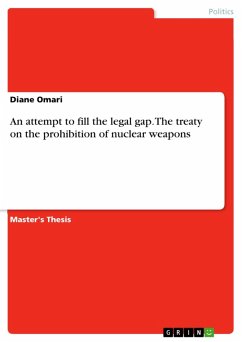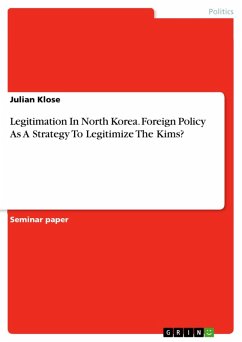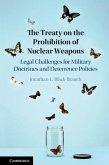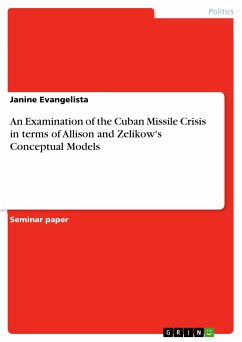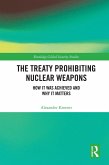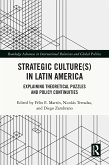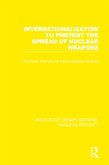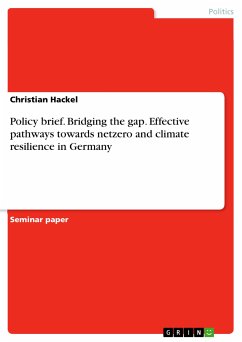Master's Thesis from the year 2019 in the subject Politics - Topic: Public International Law and Human Rights, grade: 80.00%, Leiden University, language: English, abstract: This thesis will first outline the background and key conventions that are predecessors to the TPNW. Chapter II will cover thematic similarities between these conventions, and then demonstrate how the ideas codified within these treaties left the issue of the use of nuclear weapons' legality ambiguous. It will then analyse the ICJ's famous Advisory Opinion on the matter, and the debates leading up to the acceptance for such a request. Chapter III will discuss the main recurring ideas and issues furthering the need for a convention with clarity on the illegality of nuclear weapons, and analyse the drafting process of the Treaty by observing the contribution of several states, international organizations, and non-governmental organizations ('NGOs'). Various opinions will be observed to outline the perceived legal impact of the Treaty, considering that most are dubious of the cooperation of nuclear weapons states. Chapter IV will analyse key provisions of the Treaty, its adoption, and voting patterns. This will include a look at the boycotting of the process by states with nuclear weapons and their allies, with a closer observation of the case of the Netherlands, who was the only State voting against the adoption. The thesis will conclude by identifying the potential successes of the Treaty pursuant to goals outlined in the drafting process, and identifying possible recurring issues that may occur with regards to the cooperation of nuclear-weapons states. The Treaty on the Prohibition of Nuclear Weapons' likelihood of achieving its aims will depend on the pressure it creates on states that possess nuclear weapons and their efforts towards disarmament. With an analytical view of the drafting process and subsequent voting on the Treaty, it seems the only states likely to sign or ratify the Treaty belong to the group that does not possess them to begin with. Nonetheless, the Treaty may have an effect on nuclear weapon states' behaviour if it is widely accepted by other states, compelling them to take more aggressive action towards nuclear disarmament. Therefore, while the TPNW's adoption is a progressive step towards greater certainty on the illegality of nuclear weapons, its success in creating a safer world for humanity will largely depend on the likelihood of states in possession of nuclear weapons to feel some obligation to comply with its provisions.
Dieser Download kann aus rechtlichen Gründen nur mit Rechnungsadresse in A, B, BG, CY, CZ, D, DK, EW, E, FIN, F, GR, HR, H, IRL, I, LT, L, LR, M, NL, PL, P, R, S, SLO, SK ausgeliefert werden.

